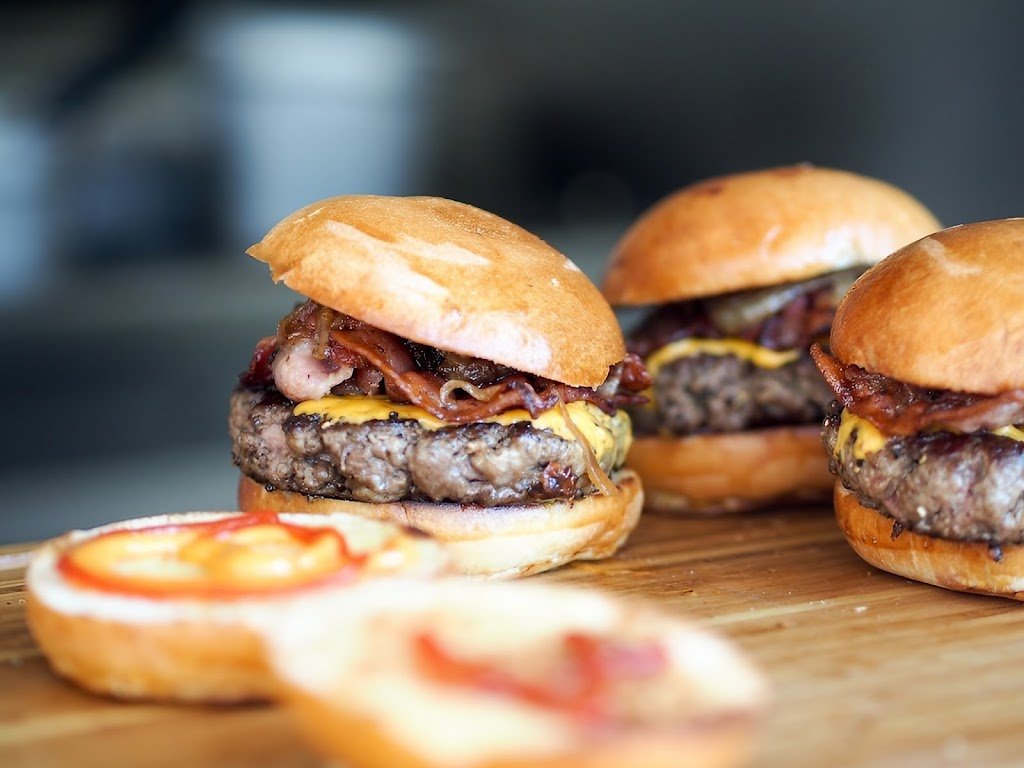Most individuals first hear about calorie deficits when they begin their weight reduction quest. It’s simple: eat less calories than you expend, and you’ll lose weight. Despite maintaining a calorie deficit, many people fail to lose weight. Weight loss is controlled by a variety of variables, making the outcomes considerably more complicated than just calorie intake and expenditure.

What Does It Mean to Be in a Calorie Deficit?
A calorie deficit happens when you consume less calories than your body requires for everyday processes such as breathing, digesting, and exercise. In principle, this gap should cause your body to use stored fat for energy. However, since the body adjusts to new calorie levels, even continuous deficits might sometimes block growth. Understanding these adjustments might help explain why outcomes don’t always meet expectations.
Common Reasons for Not Losing Weight in a Calorie Deficit
Weight loss is seldom as straightforward as monitoring calories. Several variables, including lifestyle behaviors, hormones, and muscle composition, might influence your outcomes. Here are the most typical reasons why you aren’t experiencing the benefits of a calorie deficit, as well as what you can do about it.
1. Miscalculating Calorie Intake
One typical mistake is underestimating how many calories you consume. Portion sizes, condiments, and quick snacks add up faster than you may realize. For example, a little “handful” of nuts or a teaspoon of peanut butter may contain hundreds of additional calories. Beverages such as soda, flavored coffee, and even alcohol may include uncounted calories. Accurate tracking—measuring quantities and documenting every bite—can indicate if you’re really in a deficit.
2. Overestimating Calorie Burn
People often overestimate the number of calories they burn while exercising. Fitness equipment and internet monitors may overestimate calorie burn by up to 30%, creating a misleading sensation of a bigger deficit. It’s easy to excuse additional snacks after a strenuous exercise, but they may reverse any improvement accomplished. Try to calculate calories cautiously and avoid using activity as an excuse to eat more than your meal plan permits.
3. Inaccurate Tracking of Macros and Food Types
Weight reduction is more than simply a calorie count. Weight reduction is influenced by the kinds of food you consume and the balance of macronutrients (proteins, carbohydrates, and fats). Nutrient-deficient meals may leave you feeling dissatisfied, leading to cravings and overeating. High-fiber, high-protein meals are more satisfying, allowing you to stay to your deficit without feeling hungry. Balancing macronutrients is essential for maintaining energy levels and minimizing cravings.
4. Metabolic Adaptation and “Set Point” Theory
Prolonged calorie shortages may force the body to adjust by slowing metabolism, making it more difficult to lose weight. This process, known as metabolic adaptation, results in your body burning less calories at rest. Furthermore, your body has a weight “set point” that it strives to maintain, making it difficult to reduce weight if you go below this natural range. Taking pauses from calorie restriction or modifying your intake to match your current metabolic rate will help you overcome plateaus
5. Muscle Mass and Body Composition Changes
If you’re gaining muscle while losing fat, your scale may not adequately show weight fluctuations. Muscle is denser than fat, thus even if fat loss occurs, the total weight may remain the same. This situation is prevalent among strength trainers, when muscle increase may hide fat loss on the scale. Monitoring body measurements, how clothing fits, and doing body composition analysis may provide a more full picture of your development.

6. Hormonal Factors That Affect Weight Loss
Hormones play an important role in weight management, influencing everything from metabolism to fat accumulation. High insulin levels, for example, may increase fat accumulation. Stress chemicals, such as cortisol, may also contribute to increased fat accumulation, particularly when stress is continuous. Hormones such as leptin and ghrelin regulate appetite and fullness, but they are often interrupted by poor sleep or stress. Balancing hormones with proper sleep, stress management, and a well-balanced diet will help you lose weight faster.
7. Water Retention and Weight Fluctuations
Water retention may disguise fat loss, resulting in weight swings that seem to plateau. Hormonal shifts, increased salt consumption, and even severe exercise may all cause the body to temporarily retain water. These changes are natural and often unrelated to body fat. You can monitor actual improvements more effectively if you stick to your regimen and measure progress over weeks rather than days.
8. The Role of Sleep in Weight Loss
Quality sleep is critical for weight loss since it influences appetite and stress hormones. When your sleep is interrupted, your body releases more ghrelin (hunger hormone) and less leptin (satiety hormone), which causes you to seek high-calorie meals. Poor sleep also has an impact on energy levels, which reduces enthusiasm to exercise. To help you lose weight, aim for 7-9 hours of sleep every night, stick to a regular routine, and create a soothing sleep environment.
9. Stress and Cortisol Levels
Chronic stress may impede weight reduction by increasing cortisol levels, which encourage fat accumulation, particularly in the abdomen. Cortisol influences mood, energy, and food preferences, often resulting in desires for high-calorie comfort foods. Stress management practices such as exercise, meditation, or journaling may help you lower cortisol and sustain a calorie deficit. A balanced approach to stress management may help you lose weight and feel better in general.
10. The Quality of Your Diet Matters
Calories are not all created equal in terms of health and satiety. Foods abundant in vitamins, minerals, and fiber are more filling and promote weight reduction than processed, high-calorie foods. Processed meals often lack the nutrients required to satisfy hunger, making them easier to overeat. Whole foods, such as lean meats, veggies, and whole grains, are higher in nutritional density, allowing you to feel full while keeping below your calorie limit.
Conclusion
Achieving weight loss in a calorie deficit is not always as simple as it seems. While a calorie deficit is necessary, a variety of variables, including metabolism, muscle growth, hormones, stress, and sleep, influence whether you see benefits. If you find yourself stuck on a plateau, re-evaluating these elements and making little modifications will frequently help you break free. Remember that lasting weight reduction is more than simply counting calories; it’s about living a balanced and healthy lifestyle that supports long-term objectives.
FAQs
Can stress affect weight loss, even in a calorie deficit?
Yes, persistent stress raises cortisol levels, which may lead to increased fat accumulation, especially in the belly. Reducing stress may help you lose weight.
Does lack of sleep impact weight loss in a calorie deficit?
Absolutely. Poor sleep raises hunger hormones, making it difficult to manage appetite and maintain a calorie deficit.
How can I tell if I’m losing fat but not seeing it on the scale?
Body measurements, changes in garment fit, and body composition analysis may indicate fat reduction that may not be reflected in weight changes.
Is it possible for my body to adapt to a calorie deficit?
Yes, metabolic adaptation may impede weight reduction over time. Adjusting calorie intake and boosting physical exercise might help you break through plateaus.


